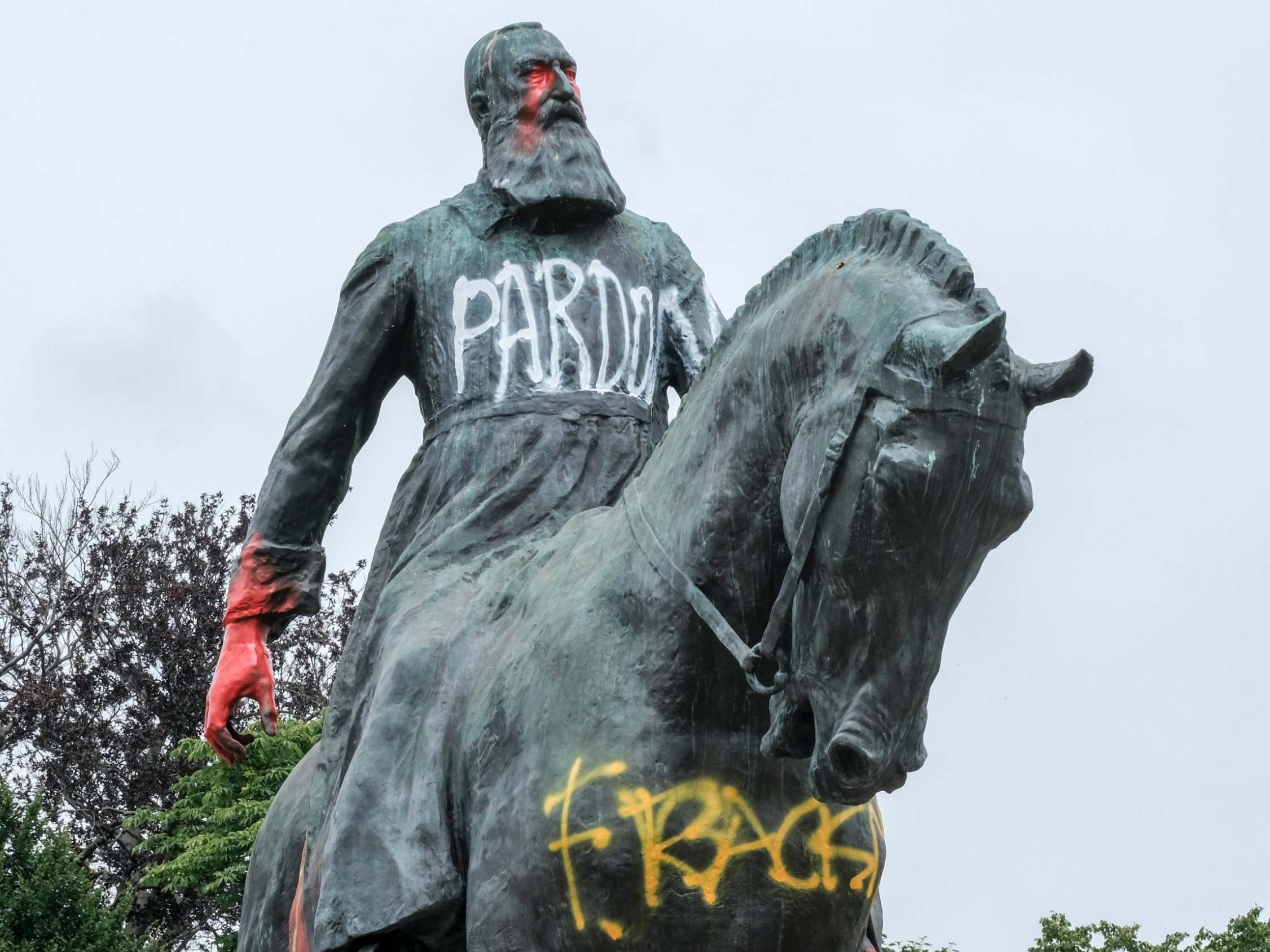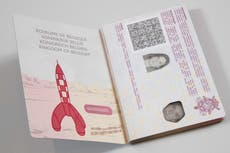Brussels statue of colonial king could be melted and made into memorial for Congo victims, says report
Streets and public spaces with colonial names in the Belgian capital should all be renamed, experts say

A bronze statue of colonial Belgian king Leopold II in the centre of Brussels could be melted down and turned into a monument to the millions who died under his rule of the Belgian Congo in the 19th century, a group of experts have recommended.
The group, composed of historians, architects and other specialists, also suggested creating an open-air statue park in which the equestrian figure could be displayed in a historical context alongside other controversial memorials.
The regional government of Brussels commissioned the group to write a report on the “decolonisation” of public spaces in the Belgian capital after a backlash against monuments to its colonial past during the Black Lives Matter movement in 2020.
Protesters targeted the statue of Leopold II, known for his brutal treatment of his colonial subjects.
The notorious monarch ruled what is now the Democratic Republic of Congo as his personal fiefdom for decades in the late 19th century. Experts say his brutal rule left as many as 10 million people dead.
The Belgian state took ownership of the huge territory in central Africa in 1908 and retained power over it until the DRC became an independent nation in 1960.
Brussels is filled with memorials of the Belgian empire that was built in Leopold's reign. Besides a wealth of statues, there are scores of streets, squares and public transport stops named after colonial figures.
The report said that public space in the capital had been shaped by a “one-sided and propagandist perspective” since the empire.
It does not recommend tearing down all statues but suggests a case-by-case approach that consults locals before taking a decision. Some could be renamed or put in context with information plaques.
The streets and public spaces with colonial names should all be renamed, the report said, warning against public consultation due to the controversial outcome of a recent referendum on the name of a Brussels tunnel.
The public voted for the Leopold II tunnel to be renamed after Annie Cordy, a recently deceased singer whose songs were littered with colonial stereotypes.
Pascal Smet, the minister with responsibility for urban planning for the Brussels region, said the report offered a nuanced approach to addressing colonial monuments. “The easiest thing would be to get rid of all the statues, but they didn’t choose that,” he said.
“Of course we all know for the individuals that are living in our city today, nobody is responsible for the colonisation, so there is no question of culpability, but it’s a question of a collective responsibility,” he said.
“I think it very important, especially in the times that we are living now … not to be stuck in history, but to understand history.”
The report said the “decolonisation” of public space could spark a wider reckoning with the position of descendants of former colonies in modern Belgium.
It said: “This requires a continuous social, political and cultural process that should not be limited to Belgium’s colonial past, but should also include other areas such as health, housing, education and employment.”
Join our commenting forum
Join thought-provoking conversations, follow other Independent readers and see their replies
Comments


Bookmark popover
Removed from bookmarks